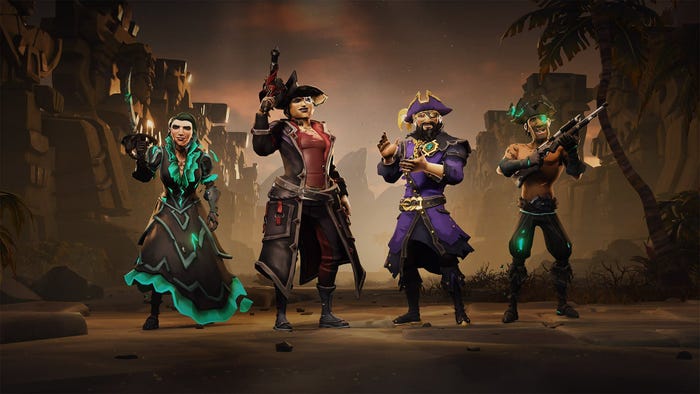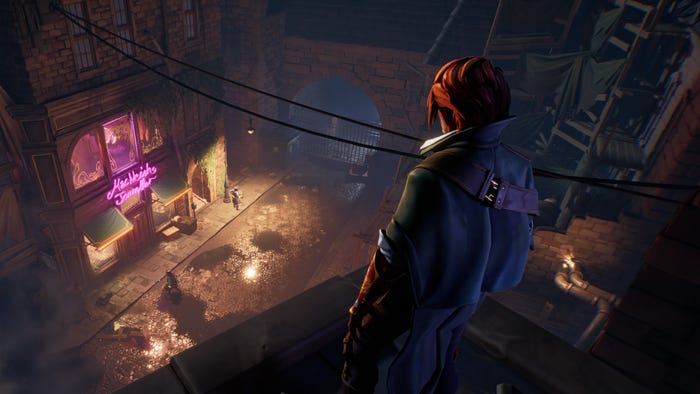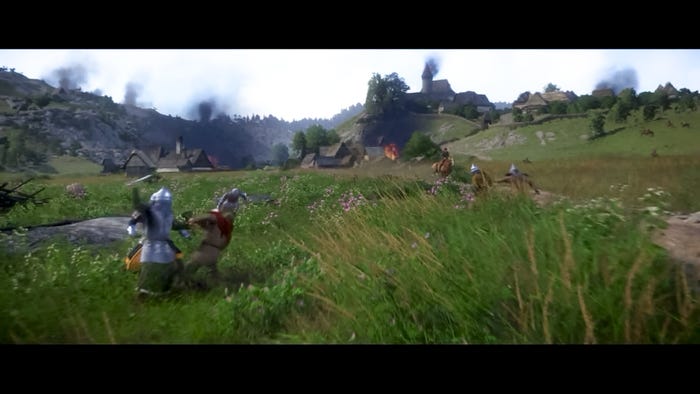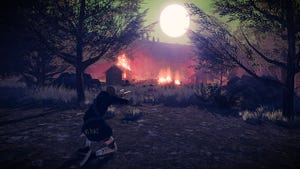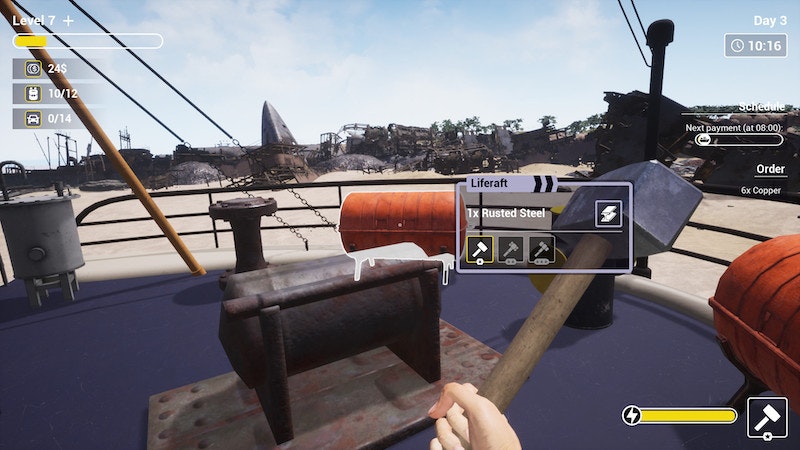
[The GameDiscoverCo game discovery newsletter is written by ‘how people find your game’ expert & GameDiscoverCo founder Simon Carless, and is a regular look at how people discover and buy video games in the 2020s.]
Those who have been subscribed to this newsletter for a while may recall our January piece on Steam Prologues - those ‘separate Steam apps which showcase a standalone early demo of your game.’ In it, we looked at data to try to work out if they were effective.
To some extent, we concluded there was a correlation/causation issue at play. In other words, popular Prologues often come from games that were likely to be popular anyhow. But you take additional publicity where you can get it. And in the wake of Ship Graveyard Simulator’s Prologue (above) racking up 100,000 players in less than a week, we thought it would be good to revisit the whole subject.
It’s clear that Steam as a platform is a little puzzled by the Prologue trend - though they don’t forbid it as long as you don’t bill Prologues as ‘demos’. But in recent months, devs have moved more strongly towards the ‘demo on your regular store page’ route. This is more enthusiastically endorsed by Steam - particularly via Next Fests, which Valve has released concrete and positive data for.
A positive Prologue example: Epiphany City
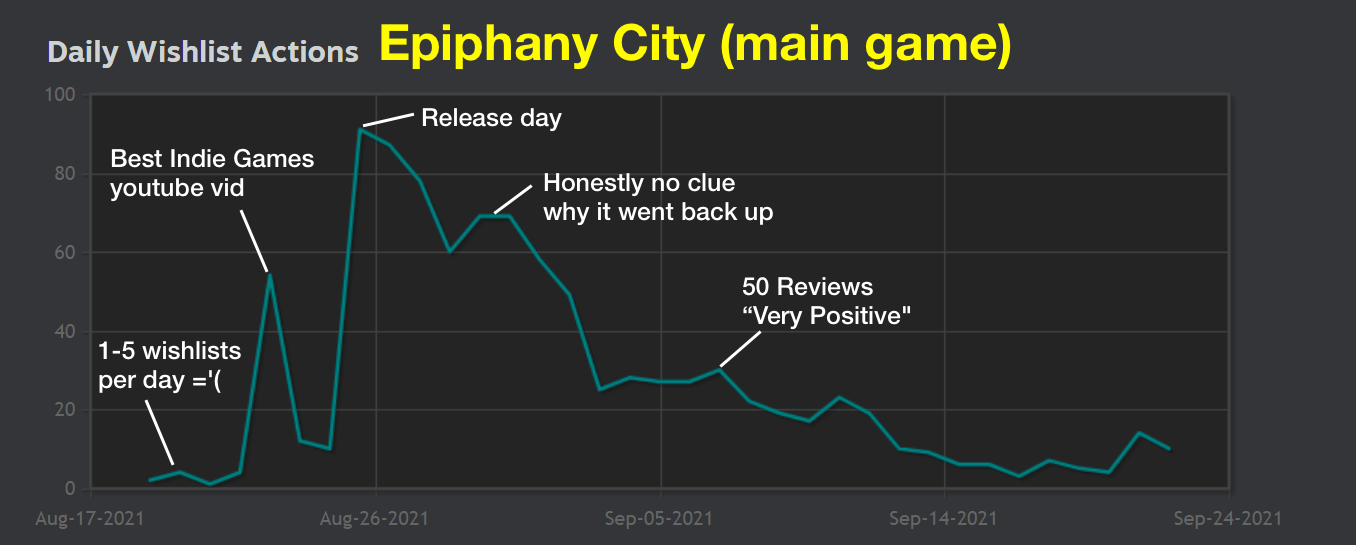
However, there are still great examples of Prologues boosting visibility for games, and GameDiscoverCo subscriber David Elliot passed along the Reddit post he did about the Epiphany City Prologue his team recently launched.
Epiphany City is “a creative puzzle game where you use magical picture frames to manipulate the world”, and he notes as an introduction that the game is “a short puzzle-adventure game with cutesy graphics (not pixel art), so it's not a game that typically does well on Steam. Our organic daily wishlist rate confirms this, as we average only 1-3 wishlist additions per day.”
And you can see the result of the Prologue launch on the main game’s wishlists above - a pretty good one. He explains: “The main game gained 866 wishlists over 1 month (this does account for deletions) and our newsletter gained 179 subscribers. This was fantastic, and by far the best part of the Prologue's release. Our wishlist rate stayed much higher than normal (10-30 wishlist additions) for at least 30 days after.”
David also shared the Steam traffic over time on the Prologue, since it has its on Steam page, and it’s pretty reasonable, espetcially from the Discovery Queue. (The Prologue itself has 69 Very Positive reviews.)
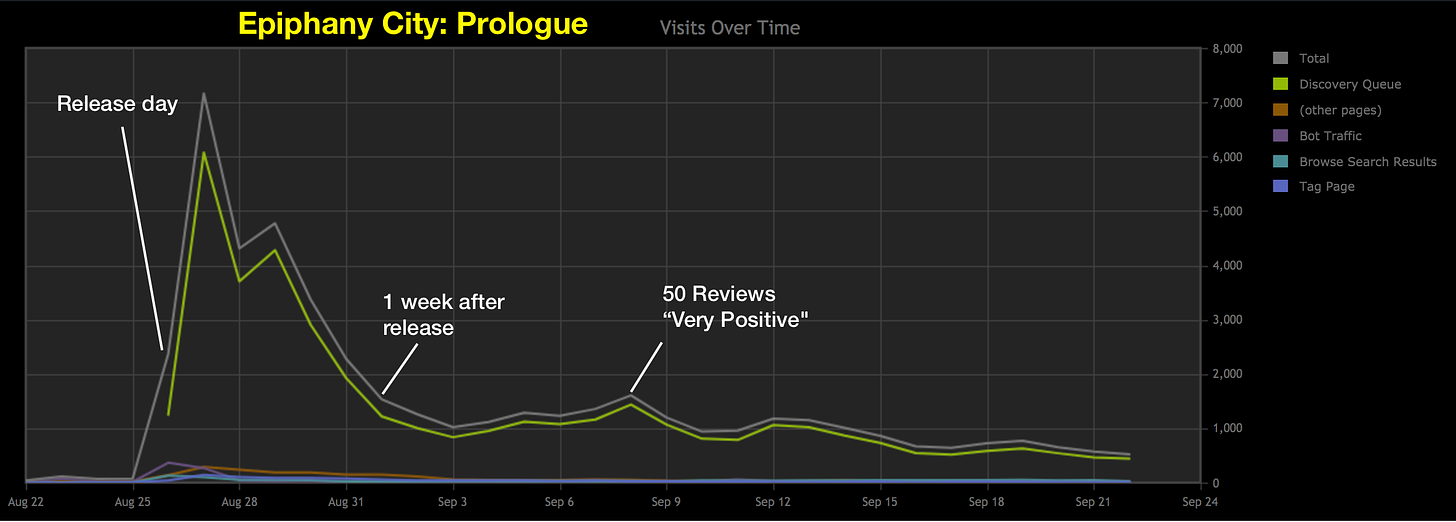
Also, with these Prologues and demos, you want to keep an eye on how many people actually played the game. For example, David notes: “10,302 people added the game to their Library, but only 1,455 people actually started up the game.”
A holistic view of Prologue releases?
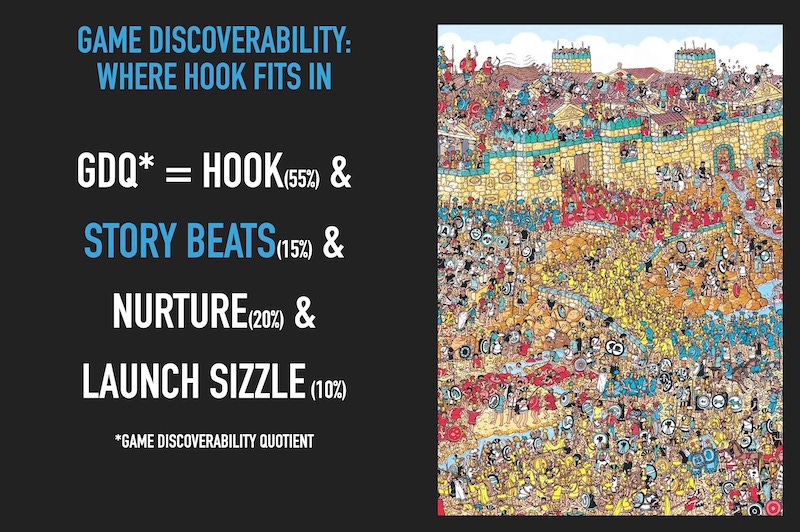
If we step back, I thought a better way to view a Prologue release is as a ‘Story Beat’ - a major announcement on the road to releasing your game. The above graphic is shorthand that GameDiscoverCo sometimes uses in presentations, as a way to think about how you break through the mass of games.
It’s fairly self-explanatory: we think your game’s ‘hook’ is key. But we also value ‘Story Beats’ - the four or five major announcements you make throughout the 12-18 months before you release a game, as well as ‘Nurturing’ your player base via Discord and community, and getting your ‘Launch Sizzle’ on point with streamer outreach & more.
And if you look at what Epiphany City did in publicizing their Prologue release, it has all the hallmarks of a major announcement ‘Story Beat’. For example, they did a successful Imgur post, posted on Reddit and Twitter, and even got featured by a YouTube channel, Best Indie Games, all timed around the release of the Prologue. So.. extra marketing for discovery!
Therefore, maybe it’s best to look at it like this. Yyou only have a limited amount of times you can make a major splash. For your game, perhaps your ‘Story Beats’ could be:
Announcement with gameplay trailer (all games, please do this?)
Open Beta or Prologue (tho maybe this isn’t an either/or?)
Next Fest appearance (don’t see why you wouldn’t?)
Release date announcement (these can be powerful - see Let’s Build A Zoo just now!)
Game is out now! (everyone has one of these!)
At this point, the discussion becomes a little less binary. It’s not ‘Prologues are great - yes/no?’, it’s more ‘you have a limited amount of times to get everyone’s attention with bigger announcements - weigh up the pluses and minuses of Prologues being one.’ Which is a different lens on the problem.
And this specific question was addressed by Epiphany City in a reply to a comment which was basically ‘why not just release this as a demo?’ The dev’s point of view: “Pro: Your game gets additional visibility from Steam algorithm when you release a game (not a lot tho); People can leave reviews; A free game might be easier to search for than a demo. Con: You might confuse traffic between the Prologue and the main game; If reviews are bad people might be less likely to play the full game?" So as you can see - it’s complex.
[We’re GameDiscoverCo, a new agency based around one simple issue: how do players find, buy and enjoy your premium PC or console game? We run the newsletter you’re reading, and provide consulting services for publishers, funds, and other smart game industry folks.]
Read more about:
Featured BlogsAbout the Author(s)
You May Also Like




